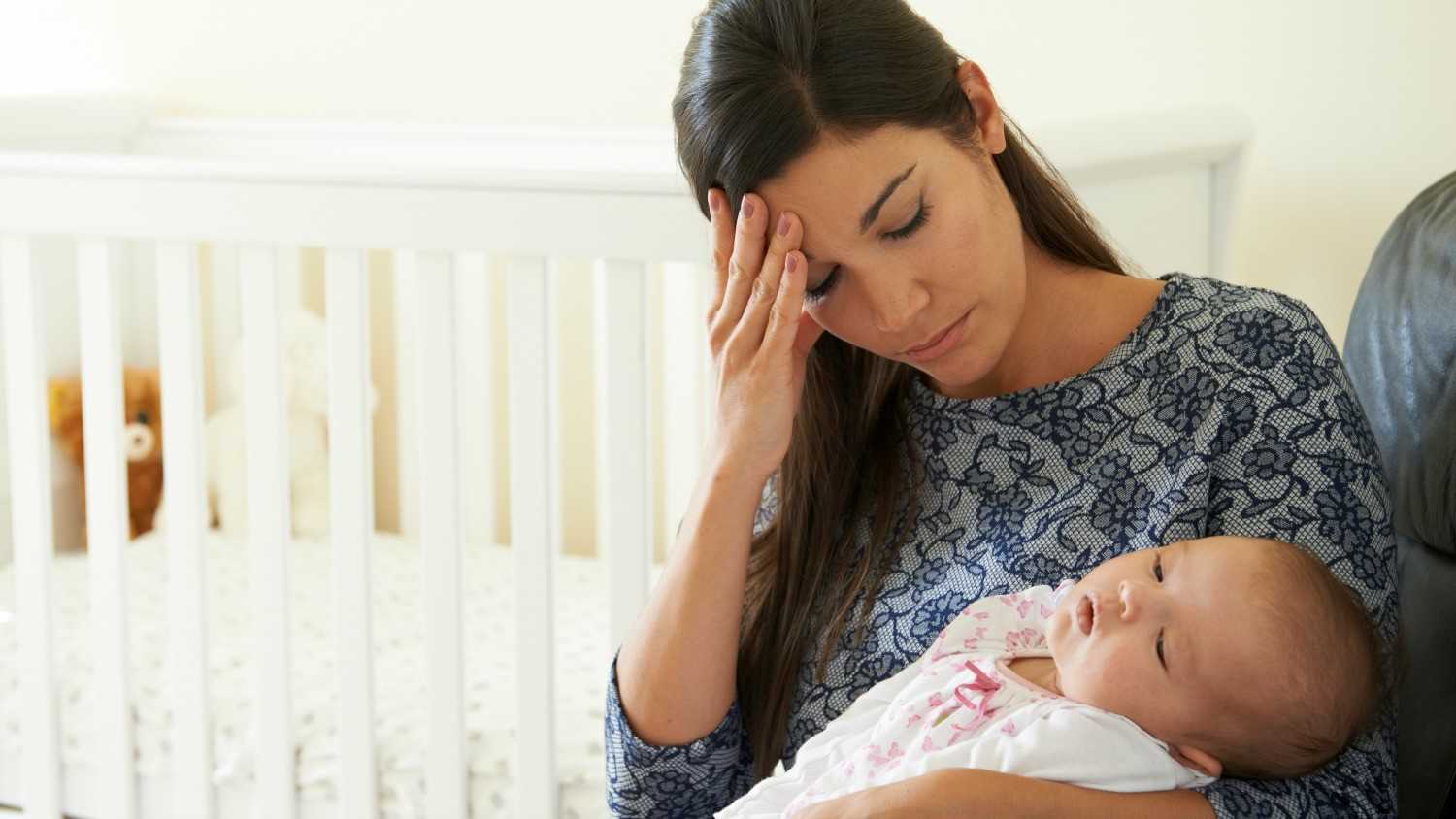Introduction
Creating a new life can be a blissful experience for a mother. It may not be true for all moms, as some may experience postpartum depression (PPD) or baby blues. New moms must be aware that it’s normal to feel overwhelmed, and it’s important to seek help. After pregnancy, women might suffer from postpartum depression or baby blues. This type of mood disorder might result in mood swings, anxiety or sadness.
Treating Postpartum Depression and Baby Blues
If you are a new mom seeking support for postpartum depression, the most important thing is to acknowledge your feelings. The partner, family, and friends must be watchful of any behavioral changes. In severe cases of postpartum depression, some mothers have feelings of hurting the baby or themselves. In such cases, you must speak to a loved one or mental health professional at once.
Symptoms of Postpartum Depression and Baby Blues
Sleepless nights, incessant baby crying, the need to breastfeed repeatedly, and the mental baggage of constantly caring for a small life who is dependent on the mother – everything can be challenging for a new mom.
Common postpartum depression and baby blues symptoms are:
- Moodiness
- Irritability
- Not feeling attached to the baby
- Eating too much or eating too little
- Anger
- Feeling hopeless or panicked
- Not opening up to friends or family
- Feeling inadequate
Some women who have a miscarriage or abortion may also experience postpartum depression symptoms.
Postpartum Depression Statistics in Canada
According to a survey conducted by Statistics Canada in collaboration with the Public Health Agency of Canada, 23 percent of women suffer from an anxiety disorder or postpartum depression in Canada. 80% of new moms suffer from baby blues, which makes them anxious for a few days after giving birth. The feeling usually fades away in a few weeks. New mothers are feeling increased anxiety due to COVID-19. The isolation has cut them off from postpartum depression support groups that allowed them to meet other mothers with similar experiences for seeking support and advice.
The survey also indicated that mothers, who have previously experienced depression or have a family history of depression, are at an increased risk of postpartum depression. Postpartum depression trends by Statistics Canada show that 12 percent of new mothers had extreme feelings of hurting themselves or the baby. The World Health Organization is concerned that the poor mental health of the mom poses a threat to the well-being of the newborn.
Difference between Postpartum Depression and Baby Blues
Bringing a new life into this world is a life-changing experience. It is an exciting time for the family, and it’s normal for new parents to feel daunted by the added responsibility. It is natural for the mother to have mood swings, crying spells and anxiety resulting from fatigue, responsibility and sleeplessness.
Some mothers are still recovering from a caesarean section or feeling weak after birthing, undergoing hormonal changes, some are feeling ugly due to the weight gain during pregnancy, and some are just lost on how to handle a small little stranger who is constantly demanding their attention. It is normal to have baby blues and sometimes even have postpartum depression. However, postpartum depression and baby blues are not interchangeable terms.
What are Baby Blues?
Baby blues are short-term mood swings and emotions linked to feeling exhausted or irked. These emotions usually subside in a few weeks.
What is Postpartum Depression?
If a mother is suffering from Postpartum Depression or PPD,sad feelings get worse over time. The new mom feels devastated, and feels like she is incapable of taking care of her newborn baby.
How Long Can Postpartum Depression Last?

Getting over postpartum depression may take a few months. Every patient is different, so it takes time to decide what can work best to treat the mother. It’s a serious disorder and should be taken seriously. Mothers can overcome postpartum depression with the right support from mental health professionals, and love & support from family members and loved ones.
How to Help Mothers with Postpartum Depression
If you know a mom who is suffering from postpartum depression, you can help her by:
- Searching for medical assistance to treat postpartum depression
- Consider hormonal therapy, antidepressants, psychotherapy, or electro-convulsive therapy (ECT), as prescribed by the doctor
- Reach out to experienced counsellors or join one of the many postpartum depression support groups near you
How Long Can Baby Blues Last?
Baby blues symptoms last for two or three weeks after birth of the baby. Most new moms have symptoms like anxiety or restlessness. Immediately after giving birth, the new mother (especially a first-time mother) suddenly has too much to manage. She must look after her health and meet the demands of the baby. The new mother often feels inadequate as it’s difficult to understand the demands of the newborn.
Baby Blues Symptoms
It’s normal to feel weepy, worrisome, restless, confused, exhausted, and quite normal to miss her freedom. The emotions that come with baby blues, however, tend to dwindle in a few weeks as the mother develops affection and feels attached to the little one.
How to Help Someone with Baby Blues
If you are a mom suffering from baby blues or you know someone with baby blues, you must do the following:
- New moms must relax and rest. Try to align your sleep along with the baby’s sleep routine
- Go out in the sun, take a walk or go out for a stroll (while following COVID-19 safety protocols)
- Do not shy away from seeking help from friends or family members
- Do something that you like to do, like cook your favorite meal or catch up with a friend
- Let your partner share the responsibility of looking after the baby for some time
- You can go for relaxing therapies like a massage or spa, or somatic therapy
Getting Over Postpartum Depression
There are several medical interventions like counseling, antidepressants, and therapy for new mothers with postpartum depression:
- Join a postpartum depression support group (which are available virtually given the pandemic restrictions) to discuss your challenges with moms who will understand dealing with postpartum depression.
- Self-care is part of the treatment for new moms. Even though it may sound difficult when you have the responsibility of a baby, some ‘me time’ can rejuvenate the mother.
- If you are not comfortable speaking to a doctor right away, speak to a trusted friend or family member to voice your concerns.
- At times, the doctor may prescribe therapy or mental health counseling
- Doctors may prescribe medication that can help the mothers to feel relieved of their symptoms.
- Counseling or therapy can help a new mother to deal with negative emotions.
Natural Treatment for Postpartum Depression
Antidepressants may not always be useful to treat anxiety and postpartum depression. Sometimes natural treatments are more useful for a new mother. For example, it is recommended to get regular exercise. It helps release feel-good hormones or endorphins that make you feel energized. Start with baby steps, like taking a walk with the baby on the stroller.
Some patients have benefited from acupuncture as it decreases the stress hormone called cortisol. Exposure to light or light therapy is also known to help some patients. Walking in the sun for fifteen to twenty minutes is proven effective for treating depression. Eating a nutrient-rich diet, getting adequate sleep, and rest can be helpful for the new mom to recover and heal.
Dealing with Postpartum Depression or Baby Blues

You are not alone. Never blame yourself for your condition. Just remember that help to treat baby blues or curing postpartum depression is always just a conversation away. If you are searching for postpartum depression natural treatment or seeking help to treat anxiety and postpartum depression effectively, speak to us or check out our online counseling and therapy services for mothers.











